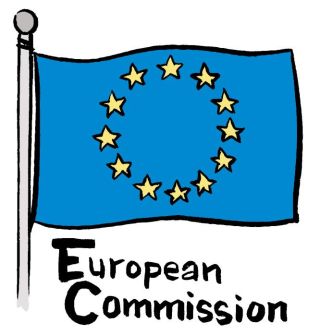Social Justice Ireland welcomes the European Commission’s Country Specific Recommendations

Social Justice Ireland has been making proposals that would address the Country Specific Recommendations (CSRs) for the past number of years. These proposals are fully costed and underpinned by research and analysis of a Government policy framework that continues to rely on a neoliberal ideology that incentivising wealth accumulation will have a ‘trickle down’ effect to address inequalities. This has patently not been the case, with over 760,000 people living below the poverty line, rising homelessness and increasing numbers of our sick and vulnerable on waiting lists and hospital trolleys.
Social Justice Ireland has responded fully to the European Commission on these latest Country Specific Recommendations. Broadly speaking, our response in respect of each CSR is as follows:
CSR 1
We welcome continued focus on broadening the tax base, an issue that Social Justice Ireland has consistently raised with the Commission and with Government and an issue we will continue to raise. We would argue that windfall gains should be used on once off infrastructure expenditure to address some of the many deficits Ireland has, particularly in the area of social and affordable housing, retrofitting to address energy poverty, digital infrastructure and water infrastructure. We welcome the focus on addressing aggressive tax planning and we have consistently argued for a European wide minimum effective corporate tax rate and the elimination of loopholes that facilitate aggressive tax planning.
In terms of health expenditure we advocate the move to primary care and community based care, an increase in the provision of home care and a move towards a statutory right to home care, and the full implementation of the Sláintecare Plan. This will involve an upfront cost to the State, but in the long-run lead to reduced expenditure on health as it will move to a preventative health system, and enable people to be treated in their communities, and easing pressure on the acute hospital setting.
The implementation of a Universal Pension for every person aged 66 and over in Ireland. We have published a research paper outlining how this can be funded and projected the costs using CSO demographic projections. This is the most appropriate form of pension reform for Ireland.
CSR 2
We welcome the focus on the active inclusion approach, and personalised integration and access to services and supports that people need to upskill. It is vital that this meets the needs of those who are most distant from the labour market and that they are supported in terms of training, access to quality employment opportunities and with appropriate income supports. These supports must be flexible to meet the needs of vulnerable groups, people with disabilities, ethnic minorities and people living in low work intensity households.
Access to care will be a key component in this regard. Increased access to quality and affordable childcare remains an issue in Ireland. Government must invest in this area and consider public provision as the current private providers are at their limit in terms of provision and providing sufficient places to meet demand.
CSR 3
We welcome the focus on investment in low carbon and energy transition, and investment in infrastructure, particularly for those who are most disadvantaged. Social Justice Ireland believes that windfall gains should be used to facilitate the one-off infrastructure required to facilitate a move to a low carbon economy and meeting our 2030 targets.
It is important that SMEs are supported in terms of research and innovation, with a particular focus on ensuring sustained employment across the regions, with a focus on the creation of sustainable jobs that take account of skills transference and meet the challenge of ensuring a Just Transition to a low carbon economy and society.